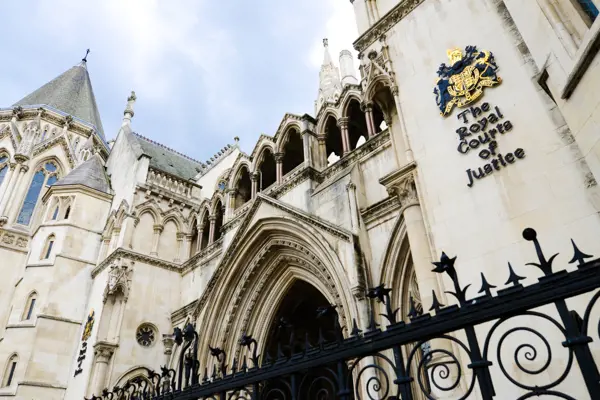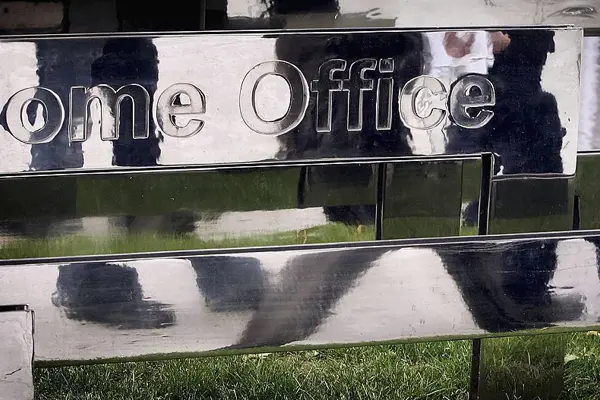Black History Month: the responsibility of the global corporation
In the context of Black History Month Stephen Bilko considers how a Nigerian community's struggle with a global corporation has its roots in the long distant past.
Posted on 27 October 2020
“Corporations have neither bodies to be punished, nor souls to be condemned. They therefore do as they like.” Financial Times (2019) Lessons for capitalism from the East India Company
The role of the corporation might not be the first thing one thinks of during Black History Month. However, the case of two Nigerian communities and their struggle for justice against one of the world’s largest corporations brings it starkly to the fore. So far, their legal case in London has lasted five years, but for the Niger Delta the struggle goes back to the colonial era. Behind it is a history of imperialism, capitalism, oppression and neglect, driven by corporate profit.
Okpabi v Shell
The case of Okpabi v Shell concerns two communities in the Niger Delta called Ogale and Bille whose lives have been devastated by oil contamination from infrastructure operated by Shell. Together, the communities comprise around 50,000 people who traditionally earned a living farming and fishing. According to Shell’s own records, the Ogale community has been impacted by at least 40 oil spills from Shell’s pipelines and equipment since 1989.
The Bille Community allege that around 13,200 hectares of mangrove have been damaged by oil spilled from the Bille Pipelines and Infrastructure, which would be the largest loss of mangrove habitat in the history of oil spills.
In 2015 the Communities initiated legal proceedings against Royal Dutch Shell (RDS) and the Shell Petroleum Development Company (SPDC) for compensation. They argue that RDS, the London headquartered parent company of the Shell Group of companies, is legally responsible for the environmental failures of its subsidiary company, SPDC because it exercised significant control over SPDC’s operations and/or assumed responsibility for those operations.
Colonialism and the corporation in the Niger Delta
In 1553 in London, the Muscovy Company became the world’s first joint stock company with “one body corporate and politick”. This new concept allowed investors to fund costly and risky projects with the pooling of resources and the promise of dividends. However, corporations often grew out of control. While many of the most successful corporations (often with British support) brought wealth and prosperity to Britain, the corporate drive for profit had little regard for human rights around the world.
One such corporation was the Royal Niger Company. In the late 19th century, as the British government established a colonial foothold in what would become Nigeria, Britain granted a Royal Charter and military support to the RNC with which it established effective rule over the Niger Delta and a monopoly over its palm oil. The company seized land, dislodged traders and drove out competition from the indigenous people. Palm oil exports then made their way to Europe to literally grease the wheels of British industry.1
The displaced Niger Delta people understandably felt aggrieved. However, when, in 1895, a party from the modern-day area known as Nembe fought back by attacking the Royal Niger Company’s trading post in Akassa, the British Navy responded in support of the Royal Niger Company. In a brutal attack the Nembe Community was flattened and thousands were murdered.
Later, when Nigeria became one nation under British colonial rule in 1914, London granted exploration rights to Nigeria’s oil exclusively to British companies including Shell and BP. The Niger Delta would go on to suffer at the hands of British corporations again.
Shell didn’t strike oil until 1956 in a town called Oloibiri. Despite the significance of the discovery, Shell agreed with Oloibiri to pay just one pound per acre per year for the use of its land. Two years later it began commercially shipping the oil to refineries in London.2
With the economic benefits of Nigeria’s resources successfully secured and repatriated, Shell went on to become one of the most successful corporations in history. Once again though, the profits of the corporation were to be put above the people of the Niger Delta. By the 1990s, persistent oil spillages from Shell’s infrastructure were so prevalent that environmental protests erupted in Ogoniland.3
Like the Nembe rebellion in 1895, those who challenged the imperial corporation’s practices were met with a murderous response in which Nigerian military and police forces attacked villages, beating, raping and killing the residents.
The Niger Delta today
Today, the Niger Delta is an area of extreme poverty. According to the United Nations Environmental Programme oil spills happen “with alarming regularity” and people live with chronic oil pollution throughout their lives.4 21.7 million litres of spilled oil shines on the Delta’s creeks, pollutes the water and contaminates the land. In many areas, sensitive mangrove swamps which are vital to the ecosystem and the economic life of so many Niger Delta residents are completely dead.
Infants die at twice the normal rate when living near the Delta’s oil spill sites and with over 14,000 spills in the Niger Delta since 2006, this truly is a human tragedy.
The social, economic and emotional cost of living with this pollution is inextricably bound to Shell’s history. While Shell continues to spill oil and profits from Nigerian oil are repatriated to the shareholders of RDS, the people of the Niger Delta have struggled and suffered what Dr John Sentamu, the former Archbishop of York described as “environmental genocide”.
Separate legal personality and the multinational corporation
It is in this context that the Ogale and Bille communities bring their case. In its response, RDS contends that it, as a parent company, cannot be liable for the acts of its subsidiary in Nigeria. The legal basis for this argument relies on the legal principle that began with the Muscovy Company in 1553 that a company has a separate legal personality of a company from its shareholders. However, this argument ignores the reality that parent companies of modern multi-national companies often exercise significant control over their subsidiaries.
In its avoidance of responsibility for these problems, Shell now seeks to exploit the very principles which underpin British prosperity and which allowed Shell to amass its massive wealth.
In 2005 Shell installed a company, Royal Dutch Shell, at the apex of a group of over 1,000 subsidiaries. This parent company, it argues, merely holds shares in the individual companies of the group and therefore owes no legal duty to the people of the Niger Delta.
This argument whitewashes history. As a corporation, Shell inherited the favour and privilege of the British empire and has become richer than three-quarters of the world’s nations with the benefit of Niger Delta oil.[10]
However, it has failed to intervene in operations that are systemically disastrous, it has failed to provide adequate resources, and it has turned a blind eye while crumbled infrastructure and the failure to clean-up spills destroyed the lives of thousands, including the Ogale and Bille Communities.
1I. Okonta & O. Douglas, Where Vultures Feast: Shell, Human Rights and Oil in the Niger Delta
2M. Peel, A Swamp Full of Dollars: Pipelines and Paramilitaries on Nigeria’s Oil Frontier
3Ogoniland is an area of Rivers State in the Niger Delta
4United Nations Environmental Program, Environmental Assessment of Ogoniland
5A. Bruederle & R. Hodler, Effect of oil spills on infant mortality in Nigeria


